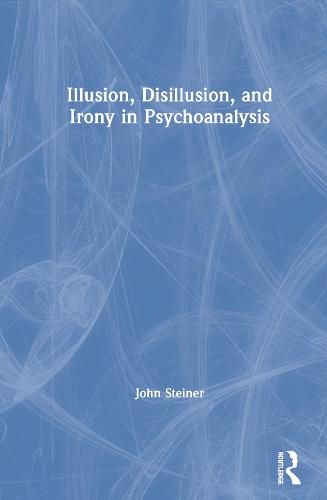Readings Newsletter
Become a Readings Member to make your shopping experience even easier.
Sign in or sign up for free!
You’re not far away from qualifying for FREE standard shipping within Australia
You’ve qualified for FREE standard shipping within Australia
The cart is loading…






Illusion, Disillusion, and Irony in Psychoanalysis explores and develops the role of illusion and daydream in everyday life, and in psychoanalysis. Using both clinical examples and literary works, idealised illusions and the inevitable disillusion that is met when reality makes an impact, are carefully explored.
Idealised phantasies which involve a timeless universe inevitably lead to disillusion in the face of reality which introduces an awareness of time, ageing, and eventually death. If the illusions are recognised as phantasy rather than treated as fact, the ideal can be internalised as a symbol and serve as a measure of excellence. Steiner shows that the cruelty of truth needs to be recognised, as well as the deceptive nature of illusion, and that relinquishing omnipotence is a critical and difficult developmental task that is relived in analysis.
Illusion, Disillusion, and Irony in Psychoanalysis will be of great use to the psychoanalyst or psychotherapist seeking to understand the patient’s withdrawal into a phantasy world, and the struggle to allow the impact of reality.
$9.00 standard shipping within Australia
FREE standard shipping within Australia for orders over $100.00
Express & International shipping calculated at checkout
Illusion, Disillusion, and Irony in Psychoanalysis explores and develops the role of illusion and daydream in everyday life, and in psychoanalysis. Using both clinical examples and literary works, idealised illusions and the inevitable disillusion that is met when reality makes an impact, are carefully explored.
Idealised phantasies which involve a timeless universe inevitably lead to disillusion in the face of reality which introduces an awareness of time, ageing, and eventually death. If the illusions are recognised as phantasy rather than treated as fact, the ideal can be internalised as a symbol and serve as a measure of excellence. Steiner shows that the cruelty of truth needs to be recognised, as well as the deceptive nature of illusion, and that relinquishing omnipotence is a critical and difficult developmental task that is relived in analysis.
Illusion, Disillusion, and Irony in Psychoanalysis will be of great use to the psychoanalyst or psychotherapist seeking to understand the patient’s withdrawal into a phantasy world, and the struggle to allow the impact of reality.